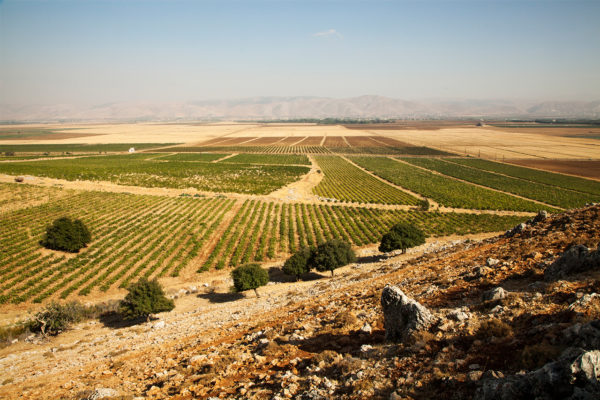

Lebanese wine, often overshadowed by the country’s tumultuous history and challenges, has a remarkable story to tell. This ancient land, squeezed between Israel and Syria, boasts a rich winemaking heritage dating back over 5,000 years to the Phoenicians. Despite a hiatus during Ottoman rule, Lebanese wine has made a triumphant return in recent decades, with more than 50 wineries now in operation. This resurgence comes at a time when Lebanon is grappling with political instability and regional conflicts, making the wine industry’s resilience all the more remarkable.
The heart of Lebanon’s wine industry lies in the Bekaa, a plateau nestled between Mount Lebanon and the Anti-Lebanon mountain range. Château Ksara, founded in 1857, is Lebanon’s oldest and largest producer, embracing the growing demand for local varieties like Merwah and Obeideh. Nearby, Domaine des Tourelles, established soon after Château Ksara, is at the forefront of this renaissance, with a focus on local grape varieties. Lebanese wine faces challenges due to the high cost of land and labor, erratic energy supplies, and the need to import various winemaking necessities. Climate change also presents concerns, with changing weather patterns affecting water management and grape cultivation. However, a newfound spirit of confidence and curiosity drives a generation of Lebanese winemakers to craft wines that reflect their unique identity, debunking conventional wisdom and proving that Lebanon is capable of producing exciting and characterful wines.

View of the Bekaa Valley looking east towards the Anti-Lebanon range.
In this narrative, Domaine des Tourelles is known for its commitment to producing wines that embrace Lebanon’s indigenous grape varieties. Winemaker Faouzi Issa, trained at renowned French wineries, believes in rediscovering the country’s unique wine culture and showcasing local grape varieties, such as Merwah and Obeideh. Cinsault, brought to Lebanon by French Jesuits in the 19th century, holds great promise as a signature grape for the country and Faouzi is convinced it can become a signature grape for Lebanon. “Cinsault is an adopted Lebanese variety,” he says. “In France it’s an underdog that seldom ripens fully. Here, with sunshine almost the whole year round, ripening is not a problem and altitude brings freshness, creating a concentrated, complex wine. Cinsault is our champion for the future.” Issa is justly proud of the bottlings of old-vine Cinsault he has made since 2014 and produces 40,000 bottles a year, alongside an equally delicious old-vine Carignan. He believes these varietals exemplify the exciting new direction of Lebanese wine.
“Cinsault is our champion for the future.”
Lebanon’s wine industry is experiencing a remarkable resurgence, with passionate winemakers like Faouzi Issa at Domaine des Tourelles leading the charge. Mentioned in Decanter’s “Lebanon’s New Wave”, Domaine des Tourelles Viellies Vignes Cinsault was a standout amongst the rest.
|
|
Decanter Tasting Note for 2019 CinsaultFaouzi Issa has been making this 100% Cinsault from the domaine’s old vines since 2014. It has an enticing, smoky nose of red fruits with hints of garrigue and aniseed. Ripe and strikingly fresh in the mouth, it has a tangy, herby intensity. Great underlying structure with plenty of rich, slightly confit fruit, but also bright, elegant and balanced, with a surprisingly delicate quality. An excellent example of how expressive, even refined, Cinsault can be in Lebanon. Good value, too, worth seeking out. |
Despite the country’s challenges, Lebanese wines are becoming increasingly diverse and adventurous, offering a unique opportunity to explore the terroirs and grape varieties of this ancient winemaking region. Embrace Lebanon’s exciting and vibrant wines, not out of pity but out of genuine enthusiasm for the quality and character they offer.
– Written by Debbie Antoszyk